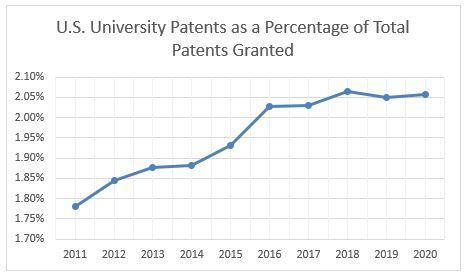IP Law Essentials
Monetizing Patents through Partnerships: University Partnerships with Law Firms and Industry
Authors
-
- Name
- Person title
- Principal

How to Monetize Patents
A patent is a time-limited monopoly on an invention. Its owner possesses the exclusive right to make, use and sell the thing covered by the patent for 20 years. This is an affirmative right the owner will not make any money by simply receiving the patent grant, so the owner needs to enforce its rights to try an monetize them: either by producing and selling the invention and enforcing its right to exclude or licensing the right to make, use or sell to others.
This is the first in a series of blog posts focusing on different ways to monetize your patent rights.
University Partnerships with Law Firms and Industry
This post is geared towards managers of research or intellectual property at universities and any entrepreneurial entity that would partner with them. Law firms and industry partner more and more with universities to monetize a university's research and intellectual property. As these partnerships have grown, so too has the percentage of university patents relative to all patents granted, as shown below:

Since passage of the Bayh-Dole Act in 1980, universities have become increasingly adept at monetizing their patents through partnerships with outside experts, while savvy entrepreneurs are seeking more opportunities to partner with universities. The partnerships can form, whether they be licensing agreements or joint ventures, at various times in a patent's lifecycle: before launching research, through the granting of the patent, and before the patent expires. Many universities have created departments to foster these partnerships, providing a centralized source for law firms or industry to communicate with the university. These departments are often called Technology Transfer Offices (TTO), though that moniker is changing as universities, rather than license the invention after development, collaborate more with law firms and industry during the research phase.
Universities that launch initiatives and research with an entrepreneurial purpose often have the best results. By centering the entrepreneurial purpose and working with the law firm or industry, the stakeholders can channel their efforts to a common goal by contributing their respective expertise. In fact, such a focus allows the university to forge a partnership and enables the partners to remain connected from the early stages, which accelerates the monetization of research and drives growth. As with any partnership, a strong foundation will pay dividends as the partnership grows.
Hard-working scholars, capital from outside the university, and increased opportunity for future projects spur these partnerships. Funding is always key, and early funding can help for example with prototype development, field trials, and efficiency studies this is where a savvy entrepreneur can profit the most. The savviest will monitor market need and determine the best sectors to fund. These entrepreneurs will then research which universities already have research directed to that sector and communicate with that university's TTO or research department heads. Partnerships can then be built around a new idea or technology already in development.
Further, the ability to leverage the early development process into viable IP, such as patents, is essential to using the IP as a long term investment. When hiring or partnering with a law firm partnership, the law firm brings expertise on how best to claim certain inventions through the patenting process, thus maximizing the potential for profitability of a university's IP assets. For example, here at Fish & Richardson, we operate a Patent Prosecution and Commercialization programthat partners with institutions throughout the process, from an idea to revenue generation, to guard and promote their interests, which provides a low capital resource of monetizing the university's research and development.
Still, plentiful opportunities abound for universities that have developed patents before seeking partnerships. No matter the field biopharmaceuticals, computer science, engineering universities collaborate with partners to monetize their patents. Some of the highest performing university systems have partnerships that generate substantial revenue for the institution and partners alike, which in turn funds more research.
In sum, these partnerships can lessen the load on university budgets as they seek patent protection of their intellectual property and provide a revenue stream for recapturing that investment. Successful partnerships lead to an increase in the value of universities' patent portfolios, creating billions of dollars in potentially unrealized revenue.
More questions? Contact the authors or visitFish's Intellectual Property Law Essentials.
Authors: Benjamin Elacqua, Alexander Kykta
The opinions expressed are those of the authors on the date noted above and do not necessarily reflect the views of Fish & Richardson P.C., any other of its lawyers, its clients, or any of its or their respective affiliates. This post is for general information purposes only and is not intended to be and should not be taken as legal advice. No attorney-client relationship is formed.